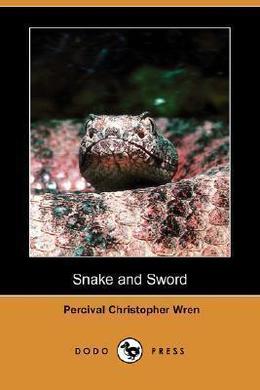
-
EPUB 316 KB
-
Kindle 394 KB
-
Support epubBooks by making a small $2.99 PayPal donation purchase.
Description
Wren’s telling of the story of Damocles de Warrenne, and his life before, during, and after serving in the Second Regiment of Heavy Calvalry, known as the Queen’s Greys. “When Colonel Matthew Devon de Warrenne, V.C., D.S.O., of the Queen’s own Bombay Lancers, pinned his Victoria Cross to the bosom of his dying wife’s night-dress, in token of his recognition that she was the braver of the twain, he was not himself.”
304 pages with a reading time of ~4.75 hours (76023 words), and first published in 1914. This DRM-Free edition published by epubBooks, 2015.
Community Reviews
There are currently no other reviews for this book.
Excerpt
When Colonel Matthew Devon de Warrenne, V.C., D.S.O., of the Queen’s Own (118th) Bombay Lancers, pinned his Victoria Cross to the bosom of his dying wife’s night-dress, in token of his recognition that she was the braver of the twain, he was not himself.
He was beside himself with grief.
Afterwards he adjured the sole witness of this impulsive and emotional act, Major John Decies, never to mention his “damned theatrical folly” to any living soul, and to excuse him on the score of an ancient sword-cut on the head and two bad sun-strokes.
For the one thing in heaven above, on the earth beneath, or in the waters under the earth, that Colonel de Warrenne feared, was breach of good form and stereotyped convention.
And the one thing he loved was the dying woman.
This last statement applies also to Major John Decies, of the Indian Medical Service, Civil Surgeon of Bimariabad, and may even be expanded, for the one thing he ever had loved was the dying woman….
Colonel Matthew Devon de Warrenne did the deed that won him his Victoria Cross, in the open, in the hot sunlight and in hot blood, sword in hand and with hot blood on the sword-hand–fighting for his life.
His wife did the deed that moved him to transfer the Cross to her, in darkness, in cold blood, in loneliness, sickness and silence–fighting for the life of her unborn child against an unseen foe.
Colonel de Warrenne’s type of brave deed has been performed thousands of times and wherever brave men have fought.
His wife’s deed of endurance, presence of mind, self-control and cool courage is rarer, if not unique.
To appreciate this fully, it must be known that she had a horror of snakes, so terrible as to amount to an obsession, a mental deformity, due, doubtless, to the fact that her father (Colonel Mortimer Seymour Stukeley) died of snake-bite before her mother’s eyes, a few hours before she herself was born.
Bearing this in mind, judge of the conduct that led Colonel de Warrenne, distraught, to award her his Cross “For Valour”.
One oppressive June evening, Lenore de Warrenne returned from church (where she had, as usual, prayed fervently that her soon-expected first-born might be a daughter), and entered her dressing-room. Here her Ayah divested her of hat, dress, and boots, and helped her into the more easeful tea-gown and satin slippers.
“Bootlair wanting ishweets for dinner-table from go-down, please, Mem-Sahib,” observed Ayah, the change of garb accomplished.
“The butler wants sweets, does he? Give me my keys, then,” replied Mrs. de Warrenne, and, rising with a sigh, she left the dressing-room and proceeded, via the dining-room (where she procured some small silver bowls, sweet-dishes, and trays), to the go-down or store-room, situate at the back of the bungalow and adjoining the “dispense-khana”–the room in which assemble the materials and ministrants of meals from the extra-mural “bowachi-khana” or kitchen. Unlocking the door of the go-down, Mrs. de Warrenne entered the small shelf-encircled room, and, stepping on to a low stool proceeded to fill the sweet-trays from divers jars, tins and boxes, with guava-cheese, crystallized ginger, kulwa, preserved mango and certain of the more sophisticated sweetmeats of the West.
It was after sunset and the hamal had not yet lit the lamps, so that this pantry, a dark room at mid-day, was far from light at that time. But for the fact that she knew exactly where everything was, and could put her hand on what she wanted, she would not have entered without a light.
For some minutes the unfortunate lady stood on the stool.
Having completed her task she stepped down backwards and, as her foot touched the ground, she knew that she had trodden upon a snake.
Even as she stood poised, one foot on the ground, the other on the stool, both hands gripping the high shelf, she felt the reptile whipping, writhing, jerking, lashing, flogging at her ankle and instep, coiling round her leg…. And in the fraction of a second the thought flashed through her mind: “If its head is under my foot, or too close to my foot for its fangs to reach me, I am safe while I remain as I am. If its head is free I am doomed–and matters cannot be any the worse for my keeping as I am.”
And she kept as she was, with one foot on the stool, out of reach, and one foot on the snake.
And screamed?
No, called quietly and coolly for the butler, remembering that she had sent Nurse Beaton out, that her husband was at polo, that there were none but native servants in the house, and that if she raised an alarm they would take it, and with single heart consider each the safety of Number One.
“Boy!” she called calmly, though the room swam round her and a deadly faintness began to paralyse her limbs and loosen her hold upon the shelf–“Boy! Come here.”
Antonio Ferdinand Xavier D’Souza, Goanese butler, heard and came.
